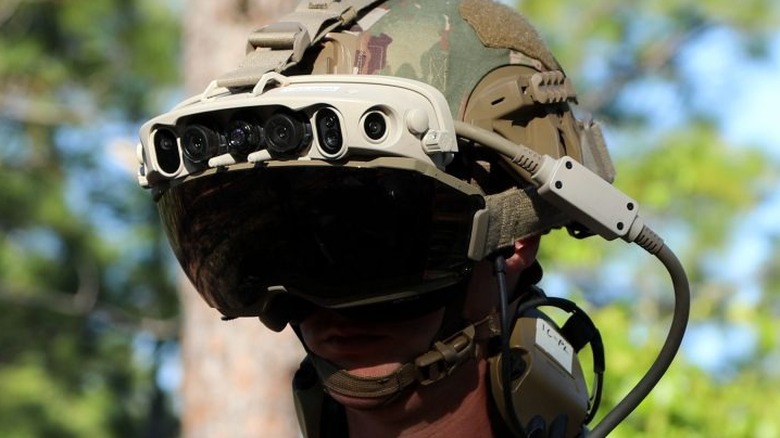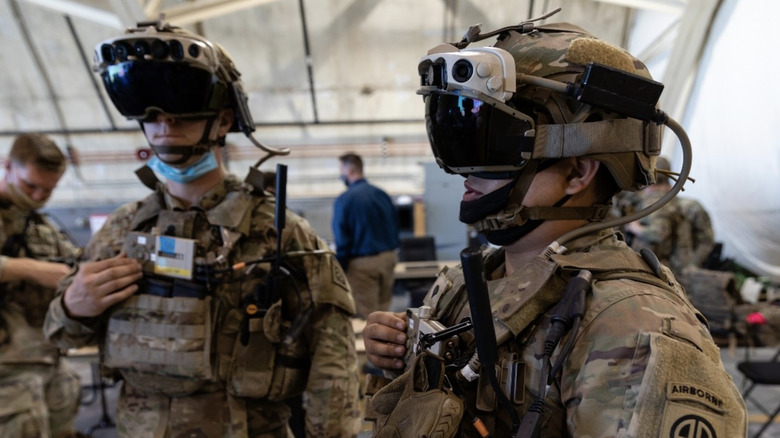Microsoft's Mixed Reality Headsets Are Not Doing Great At Advanced Warfare Training
In 2021, Microsoft announced that it has signed a contract potentially worth about $22 billion with the U.S. Army. As part of the defense partnership, the company was supposed to develop and supply a special version of the HoloLens Mixed Reality headset for training and combat preparation purposes. It appears that the early tests involving Microsoft's gear haven't really gone according to plan.
According to internal evaluation documents seen by Bloomberg, soldiers that tested the customized headset experienced "mission-affecting physical impairments" such as headache, nausea, and strain on the eyes. Of the soldiers that gave it a try and experienced unwanted side effects, more than 80% developed the aforementioned symptoms within three hours of use.
The report adds that personnel acceptance of the headset "remains low" after the fifth round of soldier testing. But more importantly, there's said to be an ongoing belief among the leaders that Microsoft's gizmo doesn't necessarily "contribute to their ability to complete their mission." To recall, it was only last year that the combat headset based on the HoloLens platform entered production.
A matter of life and death
However, it appears that the reception was far more terrifying among a few soldiers owing to the risks. According to documents seen by Insider, one of the soldiers allegedly remarked that "the devices would have gotten us killed." That alarm reportedly has to do with the fact that the light produced by the headset could help enemies spot the soldiers from hundreds of feet away, revealing their location.
Moreover, during the test phase classified as an "operational demo," the customized HoloLens gear reportedly failed in four out of six evaluation scenarios. Another critical limitation, which could possibly prove to be life-threatening, is the fact that wearing the headset limits peripheral vision. Plus, the head-mounted unit is also said to restrict the freedom of movement.
Despite the shortcomings, the tests have been labeled a success by the top brass. "The emerging results indicate that the program achieved success in most of the Army evaluation criteria," Brigadier General Christopher D. Schneider was quoted as saying by Insider, adding that the U.S. Army is committed to supplying only the most reliable and innovative tech to its soldiers.

